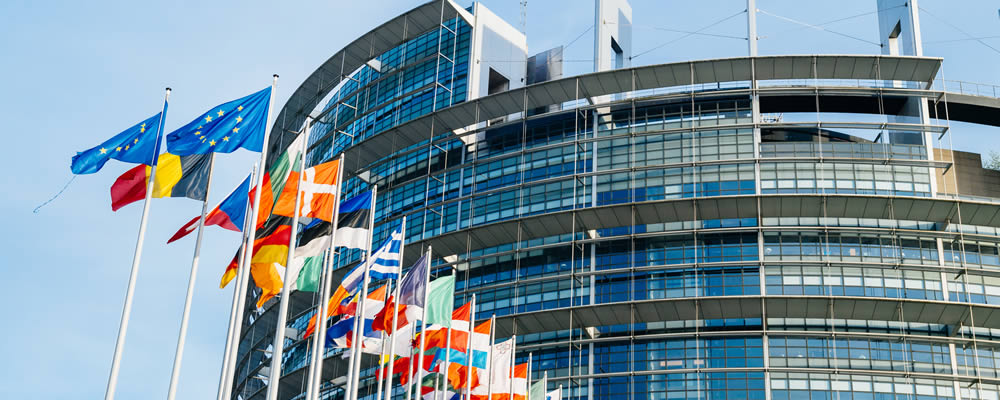The Euro to Australian Dollar exchange rate (EUR/AUD) has fluctuated on 23rd February, but the Euro has nonetheless made overall gains.
The Euro initially slipped on the day when Eurozone inflation was reported to have fallen, as this implied lower odds of a near-term interest rate hike.
Euro traders also remained on the fence because of the latest European Central Bank (ECB) minutes, which pointed to no imminent change in monetary policy.
(Last updated 23rd February, 2018)
The Euro to Australian Dollar has dropped by -0.3% on the afternoon of 22nd February, following the release of European Central Bank (ECB) accounts.
The text for the ECB’s latest monetary policy meeting has suggested that policymakers are highly reluctant to adjust monetary policy at present.
In a kid-gloves statement, the account showed that at the meeting;
‘Changes in communication were generally seen to be premature at this juncture.
Monetary policy would continue to develop with a view to avoiding abrupt or disorderly adjustments at a later stage.
Some members expressed a preference for dropping the easing bias. However, it was concluded that such an adjustment was premature and not yet justified by the stronger confidence’.
(First published 22nd February, 2018)
Worse-than-Expected German Confidence Dip Triggers EUR/AUD Exchange Rate Losses
The Euro to Australian Dollar (EUR/AUD) exchange rate has fallen slightly on 22nd February, following the release of disappointing German economic confidence data.
In February, surveying company Ifo reported falling perceptions of current economic conditions, future expectations and opinions of the business climate.
Commenting on the disappointing results, Ifo President Clemens Fuest said;
‘Germany’s very favourable business climate cooled down considerably this month. The Ifo Business Climate Index fell to 115.4 points in February from 117.6 points in January.
Companies were less satisfied with their current business situation, but the indicator was at its second highest level since 1991.
After the euphoria of recent months, companies’ assessments of the business outlook for the months ahead were also far less optimistic’.
Supportive Commodity Prices Cause Australian Dollar to Euro Exchange Rate Gains
While the odds have been against the Australian Dollar today, the AUD has nonetheless advanced against the Euro as well as peers like the Pound and US Dollar.
Recent Federal Reserve minutes have indicated that the US central bank is planning more interest rate hikes in the future.
Such announcements generally lead to the US Dollar overpowering commodity currencies like the Australian Dollar, but that hasn’t been the case this time.
The AUD’s resilience is attributed to supportive commodity prices, which benefit national exporters and contribute to economic growth as a whole.
Experts at Macquarie Bank have been looking at the supportive effects of commodity costs, stating that;
‘The key difference between now and 2000/01 is that the prices of Australia’s resources exports are around 180% higher in USD terms and the terms of trade are up nearly 60%.
Modelling of the fundamental value of the Australian dollar shows that the terms of trade is by far the most important determinant’.
Euro to Australian Dollar Exchange Rate Forecast: EUR/AUD Volatility ahead on ECB Minutes Release
The Euro could continue to fall against the Australian Dollar in the near-term, when European Central Bank (ECB) monetary policy meeting accounts are released.
Out shortly, these accounts will detail discussions held about the future path of monetary policy, as decided by ECB officials.
For Euro traders, the main point of interest will be the ECB’s thoughts regarding quantitative easing (QE).
QE entails buying bonds to stimulate monetary policy and is classed as a ‘loosening’, rather than ‘tightening’ measure.
ECB President Mario Draghi has said the bank won’t raise interest rates until after QE ends, so the minutes will be scoured for any reference to QE tapering.
If it seems that QE will continue unchecked, the EUR/AUD exchange rate could drop rapidly due to the implication of no imminent changes with ECB policy.
Further ahead, the Euro could also fall in value if Eurozone inflation rate data shows slowdowns on 23rd February.
Slowing inflation will cement the opinion that the ECB will maintain a holding pattern on monetary policy in the future, which could trigger a EUR/AUD slide.
The next Australian economic data will be out in the coming week, consisting of a manufacturing activity measure on Wednesday.
The AIG manufacturing index is forecast to show a small dip in sector activity, which could cause a brief Australian Dollar to Euro exchange rate decline.



